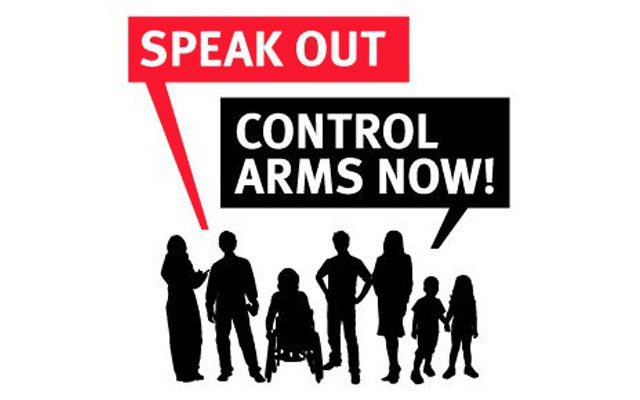
by Ben Murphy
The preparations for the Arms Trade Treaty (ATT) negotiations began in 2010, and concluded in February 2012 in a final PrepCom meeting focused primarily on determining the Rules of Procedure for the Diplomatic Conference (DipCon) tasked to negotiate the treaty set to take place 2-27 July this year.
Major debate focused on whether the conference would take decisions by consensus or by a large majority – and what the definition of ‘consensus’ is in UN bodies. Also debated were the role of NGOs in the DipCon, and the significance of the Chair’s papers at the DipCon. The positions taken up at the PrepCom on these procedural matters foreshadowed the likely lines of conflict at the DipCon on substantive matters.
The Chair’s paper
The Chair’s paper is a summary of discussions held during the course of the PrepComs, since 2010. It does not bind the states participating at all, and was issued on the sole authority of the chair (ambassador Roberto Garcia Moritan of Argentina) as an unofficial document. The paper resembles a draft treaty in form. While some states, like Iran and Pakistan, sought to have the Chair’s paper struck from documentation for the DipCon, they were defeated. NGOs and states friendly to a strong ATT sought to keep the Chair’s paper as the basis for negotiations of the ATT. This is because the paper, while not perfect, contains much solid content and it would be impossible in just four weeks of negotiation to recreate such a paper from scratch – meaning that without it the eventual treaty would have been much weaker.
Consensus-based decision making
The PrepCom agreed that substantive decisions will be taken “by consensus”, echoing, and narrowing, the wording of the UN General Assembly resolution that began the negotiating process (UN64/48) which stipulates that “the United Nations Conference on the Arms Trade Treaty will be undertaken in an open and transparent manner, on the basis of consensus, to achieve a strong and robust treaty”.
In brief, what decision-making “by consensus” actually means is neither agreed nor clear – whether decisions must be unanimous (as the US, Russia, Syria and Egypt amongst others would like), or whether an overwhelming majority would be sufficient (as Mexico, Norway, Caribbean states and others would prefer). While both versions of consensus have precedent within the UN system, unanimity would be detrimental to this process as it would give any State, including treaty opponents, veto power and likely lead to no treaty or even worse, a very weak one. It is the position of Oxfam and the Control Arms coalition that agreement by an overwhelming majority gives a better chance of an effective ATT. To what extent states like France, the UK or Germany will be willing to compromise with the likes of US and Egypt on “consensus meaning unanimity” in order to keep them on board until the end remains to be seen.
The presence of NGOs
Some states that oppose a strong ATT – like Pakistan or Egypt – wish to see NGOs excluded from the process altogether. Others, like Mexico or Norway, would like NGOs to be deeply involved. NGO expertise and other support enables smaller states that cannot provide diplomats to cover all working groups for an entire month to participate more fully in the process, by providing the information and analysis they need to do so. The PrepCom decided that NGOs will be admitted to some but not all conference bodies.
This is relatively good news as NGO participation increases the legitimacy of these ATT negotiations. Decisions made behind closed doors, without allowing effective participation from organisations that work on the front line with the people most affected by the irresponsible arms trade, will leave any future Treaty without a solid, informed and accountable foundation.
Effective NGO participation is the key to a successful outcome.
To add your voice to the Global Petition urging governments to CONTROL ARMS NOW, visit http://speakout.controlarms.org/speakout/index.php